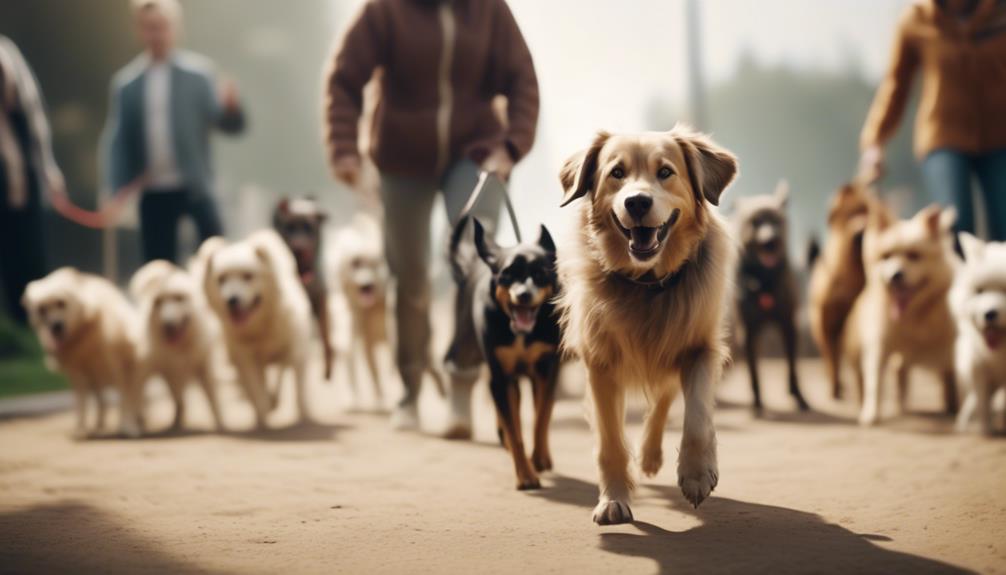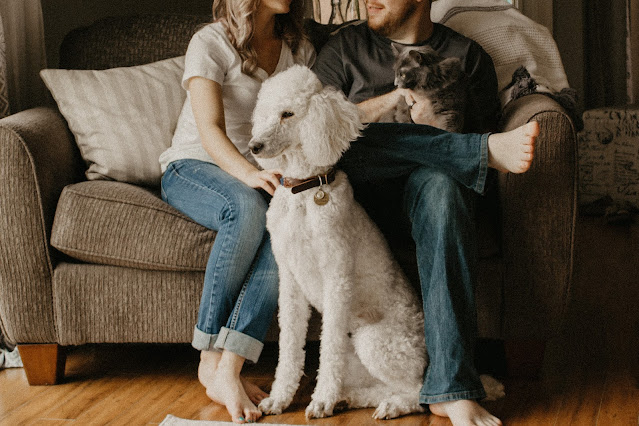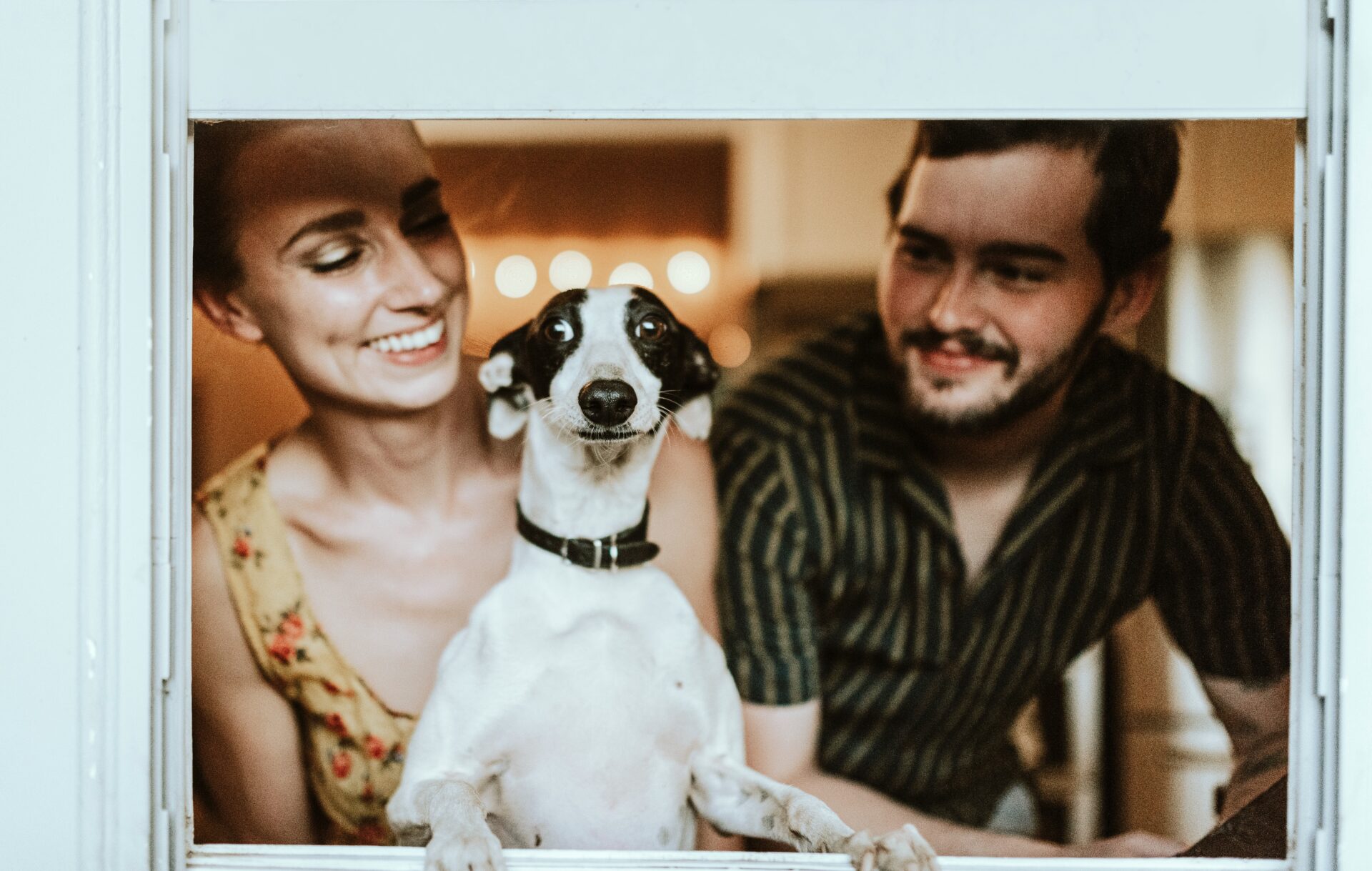Is It Possible To Socialize An Adult Dog

Is It Possible To Socialize An Adult Dog: Did you know that approximately 20% of adult dogs in the United States have not been properly socialized? This statistic highlights the importance of addressing the socialization needs of adult dogs, especially those who may have missed out on crucial early experiences. But can you socialize an adult dog?
Is it too late to help them overcome their fears and anxieties? In this discussion, we will explore the possibilities of socializing adult dogs and discover effective strategies to help them become more confident and comfortable in various social situations. So, if you’ve ever wondered if it’s possible to help an adult dog develop better social skills, keep reading to find out more.
What Is Dog Socialization?
Dog socialization is the process of helping your furry friend adapt to other dogs, new people, and unfamiliar environments, ensuring they live happier and more relaxed lives. While puppies are generally easier to socialize due to their fearlessness and curiosity, adult dogs can also be successfully socialized with some effort and patience. It’s never too late to start socializing an adult dog, whether you adopted them later in life or during lockdowns.
To socialize an adult dog, it’s important to use positive reinforcement and training methods. By rewarding calm behavior with treats and praise, you can help your dog associate social encounters with positive experiences. Gradually introduce your dog to potential triggers, such as other dogs, in controlled environments. Pay attention to their body language and provide reassurance when needed.
Taking your dog for regular walks is an excellent way to expose them to new sights, smells, and sounds. Choose different routes to ensure variety and allow your dog to become familiar with their surroundings. This exposure can help them feel more comfortable in unfamiliar environments.
As your dog progresses in their socialization journey, consider introducing them to puppies and children gradually. Supervision is key to ensure everyone’s safety and to prevent any negative experiences. Visiting dog parks or attending doggy daycare can also provide opportunities for social interaction with other dogs, under controlled and supervised conditions.
Maintaining regular socialization activities is crucial for improving your dog’s behavior and overall quality of life. With patience, consistency, and positive reinforcement, you can help make your adult dog more comfortable and confident in various social situations.
Benefits of Socializing Your Adult Dog
When you socialize with your adult dog, you unlock a multitude of benefits that contribute to their improved behavior, happiness, and overall well-being. Socializing an adult dog has positive effects on their behavior and reduces anxiety. By exposing your dog to different people, pets, and environments, you help them become more comfortable and less stressed in new situations. This increased comfort leads to increased happiness for your dog.
Socialization also helps your dog become more adaptable and resilient. They learn how to handle various situations and can easily adapt to new experiences. This is particularly important when introducing new pets or children into the family. With proper socialization, your dog can integrate into the family more easily, creating a harmonious environment for everyone involved.
In addition, socializing an adult dog can prevent the development of behavioral issues. Dogs that are socialized are less likely to become fearful, aggressive, or reactive towards other dogs or people. By exposing your dog to different social situations, they learn how to read other dogs’ body language and become comfortable around unfamiliar people.
Taking the time to socialize with an older dog is well worth the effort. The benefits of socialization include improved behavior, increased happiness and comfort, easier integration into the family, enhanced adaptability and resilience, and prevention of behavioral issues. By socializing your adult dog, you help them make positive connections and set them up for a lifetime of success.
Tips for Socializing an Unsocialized Dog
To socialize an unsocialized dog, there are several key tips to keep in mind. First, focus on using training techniques that encourage calm and friendly behavior, rewarding the dog with treats and praise. Gradually expose the dog to new people, pets, and environments, starting slow and being patient to avoid overwhelming them. Additionally, regular walks and controlled interactions with other dogs and people can help the dog become more comfortable in social situations.
Training Techniques
Gradually introducing potential triggers and rewarding calm behavior are key techniques for socializing an unsocialized dog. Start by exposing your dog to new experiences and environments slowly, to avoid overwhelming them. Take them for walks in different places to expose them to various sights, smells, and sounds.
During training sessions, introduce your dog to other dogs and humans in a calm and controlled manner. Use positive reinforcement, such as treats and praise, to reward calm behavior. It’s important to set realistic expectations and understand that every dog has its own pace for socialization. Stay positive throughout the process and focus on creating positive associations for your dog. With patience and consistent training, you can help your adult dog become more socialized.
Exposure and Desensitization
To socialize an unsocialized adult dog, start by gradually exposing them to new experiences and environments, rewarding calm behavior along the way. This process is known as exposure and desensitization. It involves introducing your dog to various stimuli in a controlled manner, helping them become more comfortable and confident in different situations. It is important to provide positive experiences during this process to ensure proper socialization.
The socialization window for dogs typically closes around 16 weeks of age, but with patience and consistency, adult dogs can still learn to be more sociable. Take your dog to different places, such as the dog park, and allow them to interact with other dogs at their own pace. However, be mindful of any signs of anxiety or fear, as some adult dogs may have experienced trauma or have separation anxiety. By gradually exposing your dog to new experiences and environments, you can help them overcome their fear and become a well-socialized adult dog.
Tools for Socializing an Older Dog
Consider using a training treat pouch to easily reward your older dog’s positive social behavior during socialization sessions. Socializing an adult dog is important, as it helps them learn to be comfortable and confident around new things and people. Just because your dog gets older doesn’t mean they can’t learn new tricks! Giving your dog treats for good behavior during socialization can help reinforce positive associations and make the experience more enjoyable for them.
In addition to a training treat pouch, another useful tool for socializing an older dog is a clicker. Clicker training is a form of positive reinforcement that can be highly effective in teaching your dog new skills and behaviors. By pairing the sound of the clicker with a treat, you can communicate to your dog when they’ve done something right. This can be especially helpful when introducing your dog to new people or situations, as it allows you to reward them in real time for exhibiting positive social behavior.
When taking your dog out for socialization outings, it’s important to have a properly sized harness. A harness provides better control and safety compared to a collar, especially for larger or more energetic dogs. Additionally, having both short and long leads can be beneficial for different training and socialization situations. A short lead allows for closer control and prevents your dog from wandering too far, while a long lead gives them more freedom to explore while still maintaining your ability to guide and redirect their behavior.
How to Socialize an Adult Dog, Including Rescues
To successfully socialize an adult dog, including rescues, it is crucial to focus on training and building positive interactions. Start by providing consistent and positive reinforcement, using rewards such as treats or praise. Gradually introduce your dog to new environments, people, and other animals, using controlled and supervised interactions to ensure their safety and comfort. Remember to be patient and understanding, as it may take time for an adult dog, especially rescues, to adjust and become more social.
Training Adult Rescues
Socializing an adult rescue dog is crucial for their overall well-being and helps them adjust to their new environment. Training adult rescues require patience, consistency, and positive reinforcement. Socialization involves exposing the dog to new experiences, people, and animals in a controlled and positive way. Begin by introducing the adult dog to calm and friendly adult dogs and humans. Reward calm behavior with treats and praise to reinforce positive associations.
Once the dog is comfortable, gradually introduce them to puppies and children, always supervising interactions and giving them plenty of space. Classical conditioning can be used to associate positive things, such as treats, with new experiences. Use high-value training treats to reward desired behavior and help the dog feel more comfortable and confident. Remember to always prioritize the safety and well-being of the dog throughout the socialization process.
Building Positive Interactions
Start by introducing your adult dog to calm and friendly individuals and gradually expose them to new environments, people, and animals to build positive interactions. Socialization is not just for puppies; it is possible to help your adult dog become more comfortable in social situations. Begin by keeping a safe distance from other dogs and slowly decrease the distance as your dog becomes more comfortable.
Encourage positive interactions by rewarding calm behavior with treats and praise. It’s important to take things at your dog’s pace and not overwhelm them. Consider enrolling in obedience classes or seeking the help of a professional trainer to assist you in this process. Remember, it’s never too late to socialize with your adult dog and help them build positive relationships with other people and animals.
Challenges of Socializing an Older Dog
Overcoming ingrained fears and anxieties can present challenges when socializing an older dog. Adult dogs may have had limited exposure to new experiences and interactions, making it harder for them to adapt. Lack of early socialization or traumatic experiences can contribute to their apprehension. It is important to approach socialization with patience and understanding, allowing the dog to progress at their own pace.
One of the challenges with socializing an older dog is unlearning or modifying established habits and behaviors. These dogs may have developed certain responses to triggers that need to be addressed. For example, an old dog who has had negative encounters with children might be fearful or reactive around them. Socializing them with children requires a gradual approach, ensuring the dog feels safe and comfortable at a distance before gradually decreasing the distance.
Physical limitations or health issues can also hinder socialization in older dogs. It is crucial to consider their well-being when introducing them to new environments or interactions. Older dogs may have reduced mobility or pain, which can affect their ability to socialize comfortably. It is important to monitor their physical condition and make adjustments as needed to ensure a positive experience.
Building trust and confidence is key when socializing an older dog. It may take longer to establish a bond and overcome their fears and anxieties compared to puppies. Patience, consistency, and positive reinforcement are essential in helping them feel secure and gradually expand their social circle.
While socializing an older dog can present challenges, it is possible to help them adjust and become more comfortable in new situations. With time, patience, and the right approach, these dogs can learn to overcome their fears and anxieties, leading to a happier, more social life.
Is It Possible To Socialize An Adult Dog Frequently Asked Questions
Can an Adult Dog Be Socialized?
Yes, you can socialize with an adult dog. Use techniques like introducing triggers gradually, rewarding calm behavior, and controlling interactions. It may take more effort, but with patience and positive reinforcement, you can help your dog become more comfortable and sociable.
What Age Is Too Late to Socialize a Dog?
It is never too late to socialize an adult dog. Socialization benefits older dogs by improving their behavior, reducing fear and aggression, and increasing their confidence. Techniques include positive reinforcement, exposure to new experiences, and seeking professional help if needed.
Can an Unsocialized Dog Be Rehabilitated?
Yes, an unsocialized adult dog can be rehabilitated through patient training methods. By addressing behavioral issues, using positive reinforcement, and gradually exposing them to different environments and animals, you can help them build confidence and overcome fear and aggression. Professional help and group training classes can also be beneficial.
What Happens if a Dog Is Not Socialized?
If a dog is not socialized, they may develop long-term issues like fear, anxiety, and aggression. Signs include nervousness, shyness, and difficulty with new people or places. Early socialization is crucial for a well-adjusted adult dog. Gradual introductions, professional trainers, and consistent practice can help overcome these challenges. Socializing an adult dog benefits their overall well-being.
Conclusion
In conclusion, socializing an adult dog is possible with patience and proper training. Gradual introductions, rewards for calm behavior, and positive reinforcement are key steps in the process. Advanced socialization steps may include interactions with puppies and children, visits to dog parks, and attendance at doggy daycare. The benefits of socializing an adult dog include increased happiness, reduced anxiety, and improved behavior in various situations. Remember, it’s never too late to socialize with your furry friend and improve their overall well-being.








